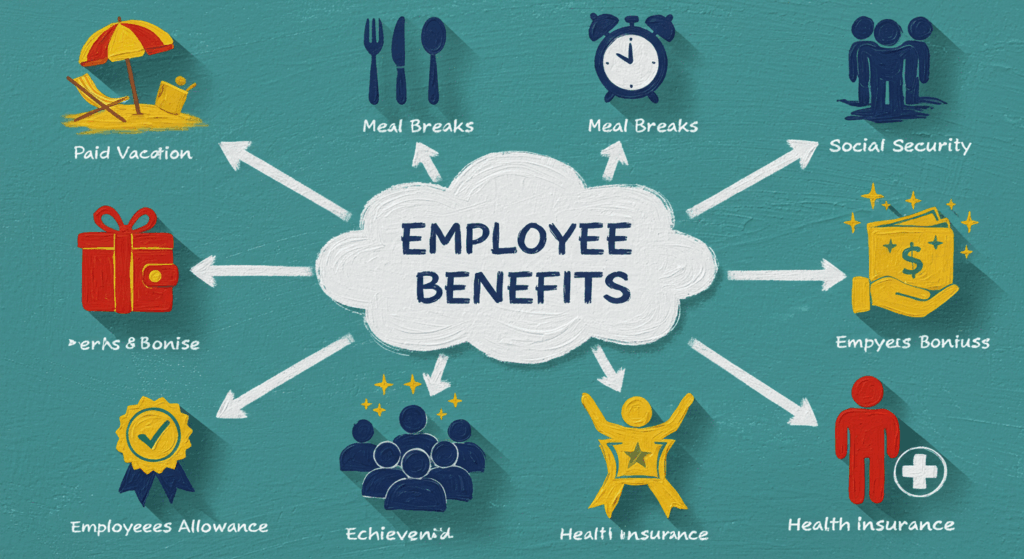We’ve all been there, right? That moment when your phone rings and it’s the hiring manager calling with good news. Your heart starts racing, and suddenly you’re faced with a job offer. But here’s the thing – that initial excitement can quickly turn into overwhelm when you realize just how much there is to consider.
To be honest, understanding job offers isn’t as straightforward as it used to be. Gone are the days when you could just look at the salary number and make your decision. Today’s job market is complex, and frankly, there’s a lot more at stake than just your paycheck.
What Actually Goes Into a Job Offer?
Let me paint you a picture. You’re sitting there with this formal document (or maybe it’s just an email – companies do things differently these days), and you’re trying to make sense of everything. It’s not just about the money, though that’s obviously important.
The Obvious Stuff (But Still Super Important)
Salary and Base Compensation Yeah, this is the big one everyone thinks about first. But here’s what I’ve learned over the years – that number on paper? It’s just the starting point. You’ve got to think about whether it’s fair for your experience level, your location, and honestly, what you’re worth in today’s market.
Job Title and Responsibilities Sometimes companies get creative with titles, you know? I’ve seen “Chief Happiness Officer” for what was basically an HR assistant role. Look beyond the fancy title and really dig into what you’ll be doing day-to-day. Will this role actually help you grow, or are you going to be stuck doing the same tasks for years?
Start Date and Logistics This might seem minor, but trust me, it matters. Can you realistically start when they want you to? Do you need time to wrap up your current job properly? Some companies are flexible here, others… not so much.
The Not-So-Obvious (But Equally Important) Elements
Benefits Package Oh boy, this is where things get interesting. Health insurance, dental, vision – these can add thousands to your total compensation. I remember comparing two offers once, and the one with the lower salary actually ended up being worth more because of their incredible benefits package.
Work-Life Balance Factors Remote work options, flexible hours, vacation time – these aren’t just “nice to haves” anymore. Especially after everything we’ve been through with remote work becoming mainstream, these factors can seriously impact your quality of life.
Growth and Development Opportunities Will they pay for conferences? Professional development courses? Some companies talk a big game about growth but don’t put their money where their mouth is. Others will invest heavily in your future – and that’s worth a lot.
How to Really Evaluate What They’re Offering
Okay, so you’ve got all these pieces of information. Now what? This is where most people get stuck, and honestly, I get it. It can feel overwhelming.
Look at the Whole Package, Not Just the Salary
There are six main things to consider when evaluating a job offer: the organization, position, location, benefits, compensation, and budget. But let me break this down in a way that actually makes sense for real life.
The Company Culture Question You’re going to be spending a significant chunk of your life with these people. During your interviews, did they seem like people you’d actually want to grab coffee with? Did the office vibe feel right? If it’s a remote position, how did the team dynamics feel during video calls?
I learned this the hard way once – took a job that looked perfect on paper, but the company culture was toxic. No amount of money is worth dreading Monday mornings.
Location, Location, Location Even if you’re working remotely, this matters. Will you need to come into the office sometimes? Is the commute reasonable for those days? And if it’s fully remote, are you okay with that long-term? Some people thrive with remote work, others… well, they go a bit stir-crazy.
The Growth Factor Ask yourself: where will this job take you? Not just in terms of career advancement within the company, but what skills will you develop? What doors might it open? Sometimes taking a slightly lower salary for better experience or connections pays off big time down the road.
The Money Math (Beyond Just Salary)
Let’s talk numbers for a minute, because this is where a lot of people make mistakes.
Total Compensation Calculation Your salary is just one part of the equation. Add in:
- Health insurance value (this can be worth $10,000+ annually)
- Retirement matching (free money, basically)
- Stock options or bonuses
- Professional development budget
- Flexible work arrangements (think about gas savings, lunch costs, etc.)
The Hidden Costs On the flip side, what will this job cost you?
- Commuting expenses
- Professional wardrobe requirements
- Childcare changes if your schedule shifts
- Eating out more if you’re working longer hours
It’s kind of like buying a house – the sticker price isn’t the whole story.
The Art of Negotiation (Yes, You Should Do It)
Here’s something that might surprise you: Only 42 perceny of young professionals negotiate the pay and benefits in a job offer, but 87 percent of those who negotiate end up making more money. Those are pretty compelling odds, right?
When and How to Start the Conversation
Timing is Everything Don’t jump straight into negotiation mode the second you get the offer. Take some time to process everything first. Allow yourself as much time as you can to evaluate and reflect. Most companies will give you at least a few days to think it over.
The Approach That Actually Works Contact the recruiter or hiring manager to set up a time to speak over the phone. While it’s acceptable to negotiate over email, it’s more effective to have a verbal exchange.
I’ve found that being genuine and straightforward works best. Something like: “I’m really excited about this opportunity, and I’d love to discuss the compensation package to see if we can find something that works well for both of us.”
What You Can Actually Negotiate
It’s Not Just About Salary Sure, salary is the obvious one, but there’s so much more on the table. Rather than zeroing in on salary, take time to think about the range of issues at stake, including benefits, role, and location.
Think about:
- Additional vacation days
- Flexible work arrangements
- Professional development budget
- Better job title
- Earlier performance review for potential raise
- Sign-on bonus
- Equipment or home office setup
The Research Game Do your homework before you negotiate. Know what people in similar roles are making in your area. Use sites like Glassdoor or PayScale, but also talk to people in your network if you can. If you can demonstrate that you should be at the top end of the salary band, show competition in the market for your skill set, or draw attention to difference between their offer and others, you are more likely to come out of negotiations successful.
The Negotiation Conversation
Be Specific (But Not Too Specific) Here’s a weird tip I learned: Avoid rounded-off figures whwn making your initial salary request. So, for example, instead of asking for a starting salary of $85,000 annually go with $85,400 instead. It sounds more researched and thought-out.
Make It About Value, Not Need Instead of saying “I need more money because my rent is expensive,” focus on what you bring to the table. “Based on my experience with X and my track record of Y, I believe a salary of $Z would be more aligned with the value I’ll bring to this role.”
Red Flags to Watch Out For
Let’s be real – not every job offer is a good one, even if it looks decent on the surface. Here are some things that should make you pause and think twice.
The Pressure Tactics
If they’re pushing you to decide immediately without giving you time to think, that’s not a great sign. Good companies want you to make an informed decision because they want you to be happy in the role long-term.
Vague Job Descriptions
If you’re still not clear on what you’ll actually be doing after multiple conversations, that’s problematic. Either they don’t know what they want, or they’re not being honest about the role.
Compensation That Doesn’t Add Up
If the salary seems way too low or way too high compared to market rates, dig deeper. Sometimes companies lowball hoping you won’t negotiate. Other times, if it seems too good to be true… well, you know how that saying goes.
The “Family” Company
Be wary of companies that describe themselves as “like a family” – sometimes that’s code for “we’ll expect you to work unpaid overtime because we’re family.” Real families respect boundaries.
Making the Final Decision
So you’ve done your research, maybe negotiated a bit, and now it’s time to decide. This part is honestly the hardest for a lot of people, and I totally get why.
Trust Your Gut (But Use Your Brain Too)
You know that feeling you get when something just feels right? Pay attention to that, but also make sure you’re being logical about it. Make a pros and cons list if that helps. Talk it through with people you trust.
The Long-Term View
You may not like everything about an offer (e.g., you’re inspired by the work but not the location) and you may have to decide if a sacrifice in one aspect is worth it to have another.
Ask yourself: Where do you want to be in five years? Will this job help you get there? Sometimes taking a step back or sideways can set you up for a bigger leap later.
When to Say Yes
You should probably say yes when:
- The role aligns with your career goals
- The compensation (total package) is fair
- You genuinely like the people you’d be working with
- The company culture feels like a good fit
- You’re excited about the work itself
When to Say No (And It’s Okay to Say No)
It’s okay to turn down a job offer. Really. Sometimes the fit just isn’t right, and that’s better for everyone involved.
Consider saying no when:
- Your gut tells you something is off
- The compensation is significantly below market rate and they won’t negotiate
- The role doesn’t align with your career goals
- You have serious concerns about the company’s stability or ethics
- The work-life balance expectations are unrealistic
Moving Forward After Your Decision
Whether you accepy or decline, handle it professionally. If you’re accepting, get everything in writing and ask about next steps. If you’re declining, be gracious and brief – you never know when your paths might cross again.
If You Accept Congratulations! But your work isn’t done yet. Make sure you understand your start date, what you need to do before then, and who your main contact will be. Some companies have orientation processes, others just throw you in the deep end.
If You Decline Thank them for the opportunity and keep it brief. You don’t need to go into detail about why you’re passing, just be polite and professional.
Final Thoughts
Understanding job offers is honestly an art as much as it is a science. Every situation is different, and what’s right for your friend might not be right for you. The most important thing is to take your time, ask good questions, and make a decision that aligns with both your immediate needs and your long-term goals.
Remember, this is a negotiation between two parties who both want something. They want a great employee, and you want a great job. When both sides approach it with that mindset, everyone usually ends up pretty happy with the outcome.
And hey, if you make a decision and it doesn’t work out perfectly? That’s life. Most of us will change jobs multiple times throughout our careers, so each offer is just one step in a longer journey. Don’t put so much pressure on yourself to make the “perfect” decision – just make the best decision you can with the information you have right now.
The job market is always changing, but the fundamentals of evaluating opportunities remain pretty consistent: know your worth, understand the full package, and trust yourself to make good decisions.









